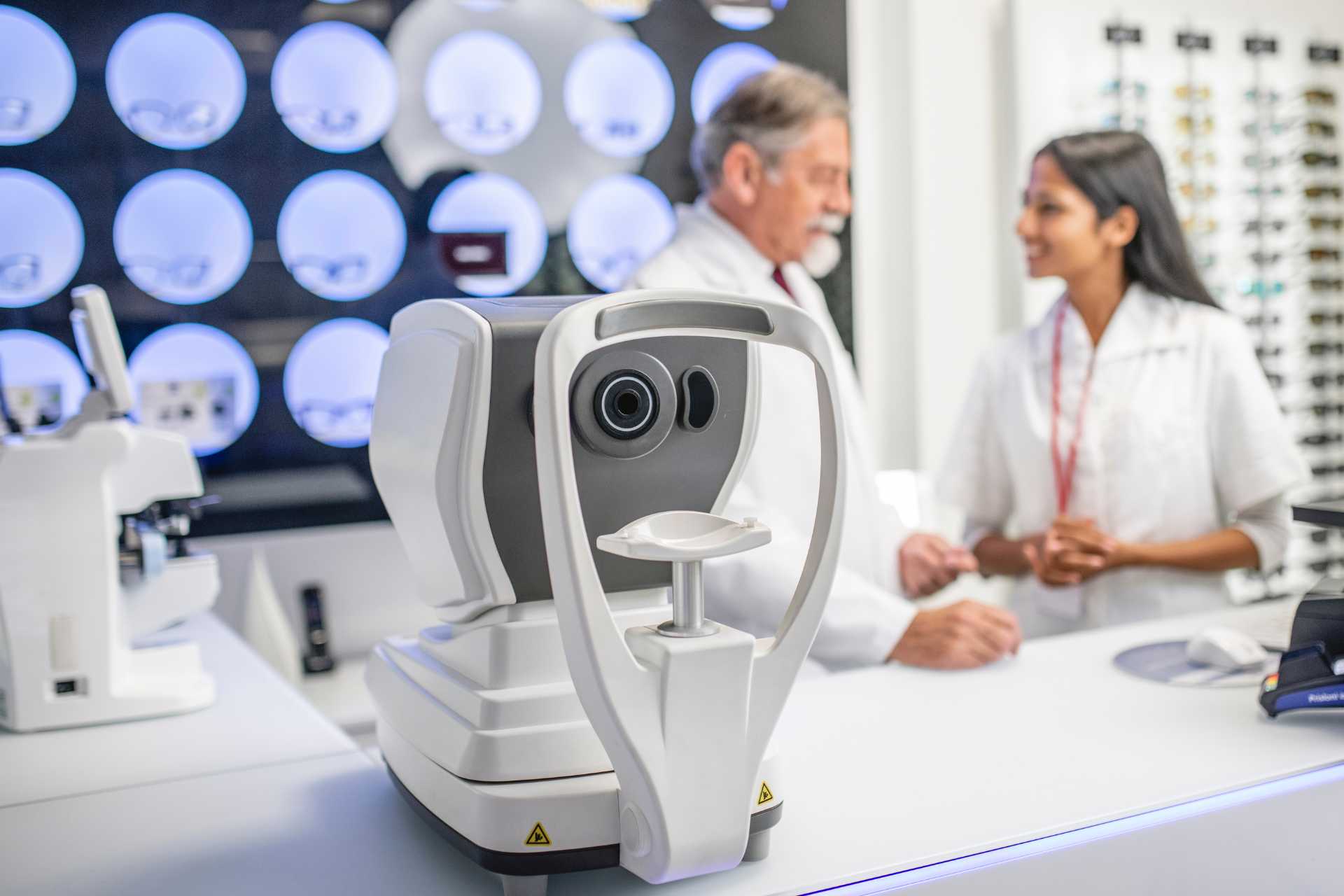The world of eye care offers exciting opportunities for those with a passion for vision health. But when choosing your path, understanding the differe
The world of eye care offers exciting opportunities for those with a passion for vision health. But when choosing your path, understanding the difference between an optometrist and optician is crucial. Both play vital roles, but their career progressions differ significantly.
Opticianry: A Direct Path to Patient Care
- Education: An associate’s degree in opticianry or a certificate program is required.
- Responsibilities: Opticians focus on providing exceptional patient service. They conduct pre-tests, measure and fit eyeglasses and contact lenses, and educate patients on proper eye care.
- Progression: Experienced opticians can specialize in areas like pediatrics or sports vision. Some may advance to management roles in optical shops or become trainers for new opticians.
Optometry: A Journey of Advanced Eye Care
- Education: A Doctor of Optometry (O.D.) degree requires a bachelor’s degree followed by four years of optometry school.
- Responsibilities: Optometrists are primary eye care providers. They conduct comprehensive eye exams, diagnose and treat vision problems and eye diseases, prescribe medications, and perform minor surgical procedures.
- Progression: Optometrists can open their own practices, work in retail settings, specialize in areas like pediatrics, geriatrics, or low vision rehabilitation. Some may pursue research or teaching positions.
Choosing Your Path
The ideal choice depends on your interests and goals.
- Do you crave in-depth medical knowledge and the ability to diagnose and treat eye conditions? Optometry might be the perfect fit.
- Are you passionate about patient interaction and helping people see clearly? Opticianry could be your calling.
Optometry and opticianry both offer rewarding careers with excellent earning potential. While the financial outlook can vary depending on factors like location, experience, and practice setting, both professions enjoy a healthy job market with a growing demand for skilled eye care professionals.
However, the career paths diverge in terms of educational investment and scope of practice. Optometry requires a more extensive commitment. Following a bachelor’s degree, prospective optometrists embark on a four-year Doctor of Optometry (O.D.) program. This rigorous academic journey equips them with in-depth knowledge of the eye, its diseases, and the latest treatment modalities. The reward for this dedication is a broader scope of practice. Optometrists are primary eye care providers, qualified to conduct comprehensive eye exams, diagnose and treat vision problems and eye diseases, prescribe medications, and perform minor surgical procedures. They can choose to open their own practices, work in retail settings, specialize in various areas like pediatrics, geriatrics, or low vision rehabilitation, or even pursue research or teaching positions.
Opticianry, on the other hand, offers a quicker entry point into the workforce. An associate’s degree in opticianry or a certificate program can equip you with the necessary skills and knowledge. Opticians play a vital role in patient care within a retail environment. They conduct pre-tests, measure and fit eyeglasses and contact lenses, ensure the proper fit and function of corrective lenses, and educate patients on proper eye care and lens maintenance. While the focus is on exceptional patient service and translating prescriptions into practical solutions, experienced opticians can also specialize in areas like pediatrics or sports vision. Additionally, some may advance to management roles in optical shops or become trainers for new opticians.
Ultimately, the choice between optometry and opticianry boils down to your individual goals and aspirations. Are you drawn to the in-depth medical knowledge and diagnostic capabilities of an optometrist? Or does the focus on patient interaction and providing immediate solutions resonate more with you? Regardless of your choice, the world of eye care offers a unique opportunity to make a tangible difference in people’s lives. You’ll be helping them see the world more clearly, navigate their daily activities with confidence, and maintain optimal eye health.

